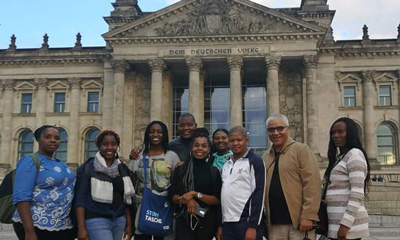
Women empowerment vital in development
Statement by Phumzile Mlambo-Ngcuka, UN Under-Secretary-General and UN Women Executive Director, on the financing for development outcome document following the Third International Conference on Financing for Development.
As we turn from the Third International Conference on Financing for Development, and move our sights to the negotiation of the post-2015 sustainable development agenda, let us keep the end game in view, says The Action Agenda makes a strong political commitment to “ensure gender equality and women’s and girls’ empowerment” in the context of setting a global framework for financing of development post-2015. It reaffirms at the outset that the full realisation of women’s human rights, gender equality and women’s empowerment are essential to achieving sustained, inclusive and equitable economic growth and sustainable development. It includes as priorities for investment positive elements, including strengthened laws, policies and measures, and their implementation in relation to gender equality and women’s empowerment; the reiteration of the need for gender main streaming into all policies, and targeted transformative actions and investments for the promotion of gender equality at all levels.
The Addis Ababa Action Agenda also importantly commits to realizing the equal rights of women in political and economic decision-making and leadership, and equal rights to economic resources.
Mlambo-Ngcuka said in addition to the undertaking to bring resources – public and private, domestic and international, conventional and innovative – to aspects that are currently missing or insufficient – for example, the promotion of women’s access to science, technology, innovation and capacity building – there is also useful commitment to remove current barriers. For example, to remove constraints to women’s full participation in the economy, ensure equal access to financial services and financial literacy, to decent work, as well as to education and to infrastructure, including for water, sanitation or fuel, which frees up women’s time and energy.
None of these gains would have been possible without the relentless advocacy of women’s groups that have also given high visibility to gender equality issues at the conference itself while advocating for systemic changes in the financial and economic architecture.
The Action Agenda in many significant ways builds upon commitments made in the Political Declaration adopted by Member States at the 59th Commission on the Status of Women in March 2015 focusing on the 20-year review and appraisal of the Beijing Declaration and Platform for Action. In the Declaration, Member States explicitly recognised the persistent gender funding gaps and pledged to take concrete action, including through “significantly increased investment to close the resource gaps”. UN Women hopes that this commitment will be carried forward in the post-2015 development agenda.











































